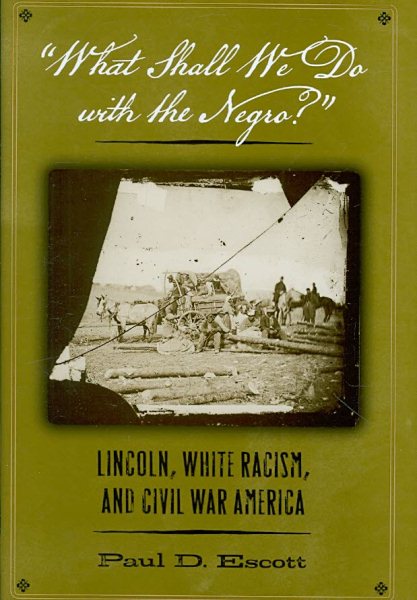 by Paul D. Escott
by Paul D. EscottAward-winning historian Escott takes up the persistence of racism in 19th-century America by arguing that Abraham Lincoln especially has been miscast in American memory as an unduly enlightened thinker on matters of racial equality, when in fact he was conflicted at best and complicit too often in the common racial attitudes of his day. In his most assertive sections, Escott argues that, as President, Lincoln had an "overriding devotion to reunion," as well as doubts about changing American racial attitudes and fears of losing political support by endorsing more than emancipation, all of which led to a minimalist policy on race, rights, and proposed reconstruction. At the same time, Escott continues, the Confederacy paradoxically was forced by need to propose arming and freeing some slaves to win independence, preserve slavery, and ensure white men's rule. In sum, Escott insists that events rather than philosophy or principles directed, even dictated, much of American policy on slavery and freedom, and racism remained embedded in American life.
(Check Catalog)

No comments:
Post a Comment